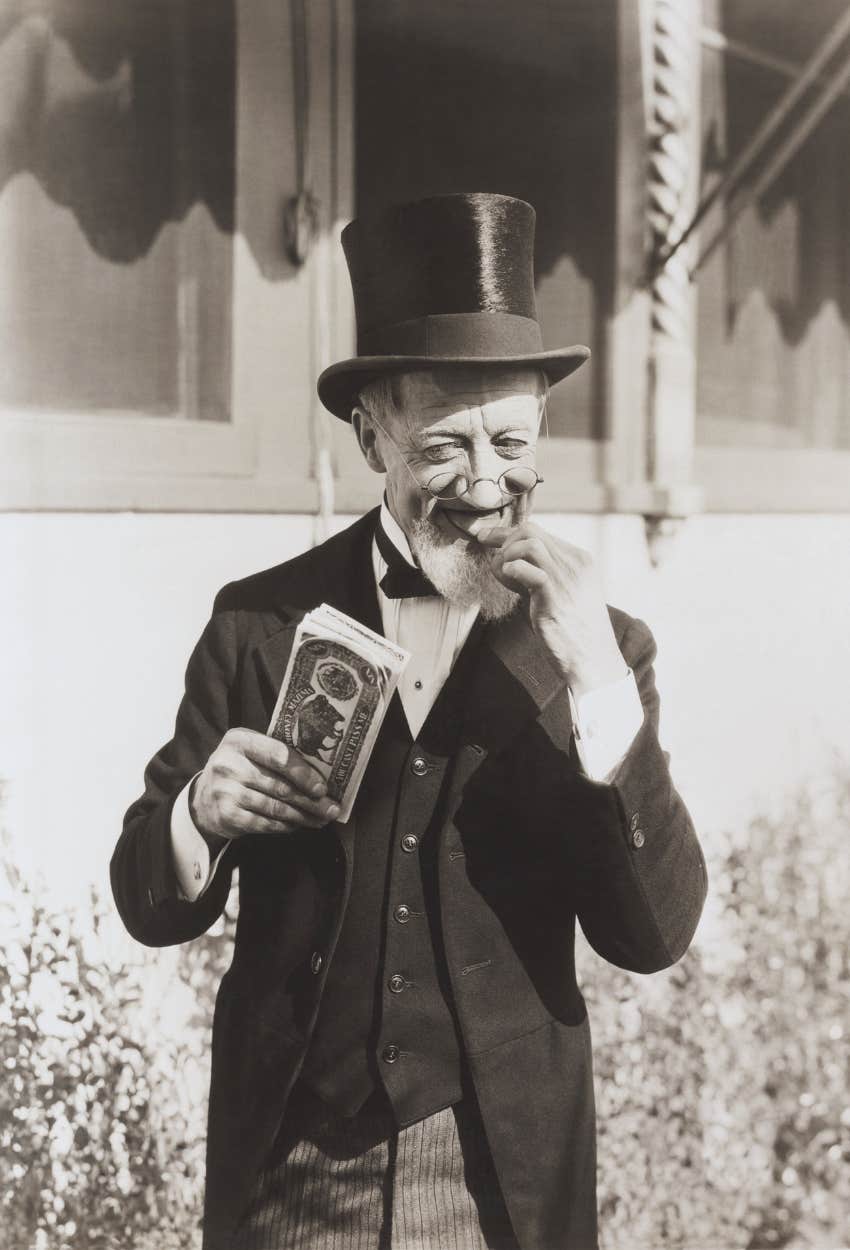Why People Are So Greedy, According To A Licensed Therapist
A glimpse into the psyche of a greedy person.
 Nicoleta Ionescu | Shutterstock
Nicoleta Ionescu | Shutterstock Greedy people often take more than they need and don’t have much sympathy for the people they take from. There are several reasons for this, but one in particular is that greedy people will never freely or willingly "give" the things that they receive from others.
This stems from underlying emotional issues where possessions and favors fill voids for attachment. Explaining the psychology behind greed can help us better understand why people commit greedy acts.
According to a licensed therapist, people are greedy because ‘the human brain evolved to help you survive, not to make you happy.’
Jeffrey Meltzer, a therapist based out of Florida, took to TikTok To delve into why greedy people are the way they are. He explained that getting material objects or even success can help increase a greedy person's happiness levels, but eventually, it won't be enough because the brain's dopamine threshold will alter, making it harder to sustain those feelings of satisfaction.
The therapist explained how when dopamine wanes, a greedy person might start to feel anxious, looking for the next thing that will bring those levels back up again.
Meltzer said, "Our brain levels are supposed to rise and fall, but when those levels drop, we panic!"
When we panic, we immediately look for the quickest fix to make us feel better, which leaves us often chasing things that are not good for us. This gets us stuck in a perpetual cycle where, as Meltzer described, we are "always reaching for more to avoid feeling less," which delays our growth.
Greedy people tend to get their fixes from acts that center around selfish tendencies. It’s more about what they get out of a situation rather than any other individual. Personal history or even old debts do not matter to them.
So, how does one break this cycle?
Well, for starters, an individual should learn to accept feeling their negative emotions. According to a 2022 study, greedy people have been shown to be dissatisfied with the state of their lives, which lowers their self-esteem and satisfaction. As a result, they believe they deserve more in life than the hand they were dealt with. They were also shown to treat those who were around them worse as they were a stark reminder of their inadequacies.
Greed has become synonymous with wealth, but it's not as simple as that.
Most would assume that the majority of greedy people are often wealthier than the person that they are taking advantage of. From an evolutionary perspective, it makes sense. In order to retain wealth, you must desire wealth at any cost. But it's not quite as cut and dry as that.
 The Everett Collection | Canva Pro
The Everett Collection | Canva Pro
According to Psychology Today, our beliefs about money are formed in childhood, with notions of the rich being Scrooge-like characters twirling their mustaches and stealing from the destitute. While there certainly are wealthy individuals who are also greedy, the personality trait doesn't discriminate based on your bank account.
As the outlet noted, Money is just a tool people use, nothing more. There is no morality behind money itself. The morals of the person using it determine greed. If a wealthy person uses their money to swindle vulnerable people, then that is a character flaw on their end. Not all wealthy people are evil just because they have money.
And it's also important to note that greed is not solely tied to money. People can feel the need to acquire anything from a person's time and attention to a sense of power and control. The common denominator is always a scarcity mindset. To truly heal, you must let go of the fear that what you desire to have is finite, and you must hold on at all costs.
Sylvia Ojeda is an author with a decade of experience writing novels and screenplays. She covers self-help, relationships, culture, and human interest topics.

